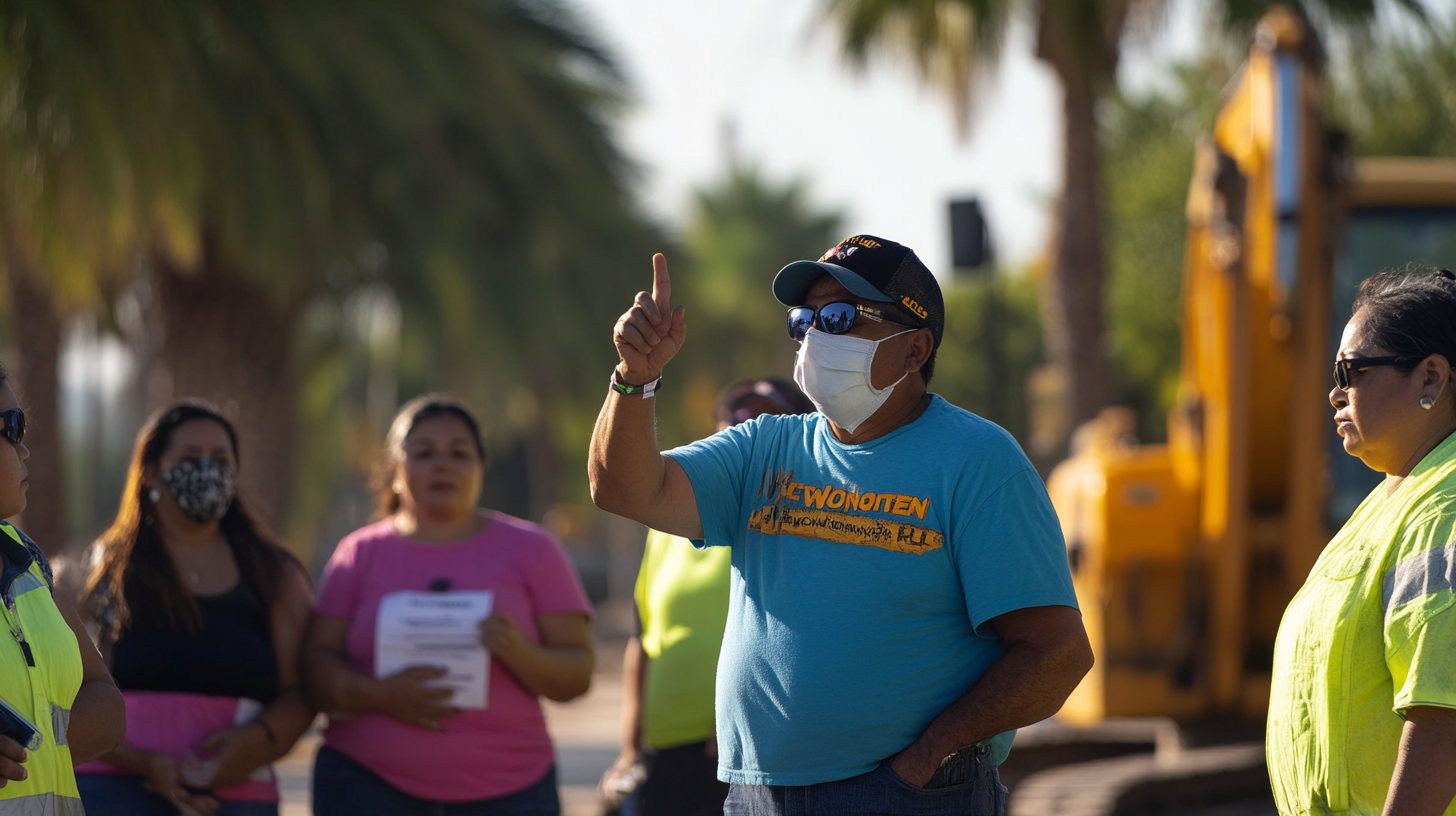Apologies for the confusion. Here’s the article based on the provided information:
Brownsville Officials Promote Controversial LNG Project Amid Legal Challenges
In a recent development that has garnered significant attention across the Rio Grande Valley, local elected officials in Brownsville are actively supporting the embattled Rio Grande LNG project. Despite a U.S. court order halting its progress, the project’s backers — notably Houston-based NextDecade — have enlisted the support of local leaders through strategic public relations efforts.
Background on the LNG Project
The Rio Grande LNG project, proposed by NextDecade, promises to be one of the largest liquefied natural gas facilities in the United States. Planned for 984 acres of wetlands near Port Isabel, the facility is intended to liquefy and export natural gas extracted from a fracking site in Kingsville. The gas will be transported using the proposed 137-mile Rio Bravo Pipeline.
However, environmental concerns have cast a shadow over the project. A recent ruling by the U.S. Court of Appeals for the D.C. Circuit overturned NextDecade’s authorization from the Federal Energy Regulatory Commission (FERC). The court cited insufficient analysis of environmental justice impacts and air quality data — a decision that calls for a Supplemental Environmental Impact Statement (SEIS).
Local Officials and the PR Campaign
In the wake of this legal setback, NextDecade launched a comprehensive public relations campaign aimed at rallying support. Central to this effort is the slogan “Stand with Rio Grande LNG,” with claims that the court’s decision jeopardizes Cameron County’s economic future. Electronic correspondences obtained by the Texas Observer reveal coordination between NextDecade and Brownsville officials to promote the project. Emails show company executives providing talking points, drafting op-eds, and arranging meetings with key officials, including Brownsville Mayor John Cowen.
Brownsville’s engagement with NextDecade has been met with controversy. Critics argue that such collaboration risks ignoring substantial environmental and community concerns. Despite the legal and environmental hurdles, some local officials have echoed NextDecade’s economic promises, reinforcing the narrative that the project is crucial for regional development.
Community and Environmental Concerns
The project has faced opposition from various grassroots organizations and environmental groups, including the Sierra Club and the Carrizo/Comecrudo Tribe of Texas. These groups warn of severe health costs and significant environmental degradation, threatening local wildlife habitats crucial for migratory birds and endangered species like the ocelot.
Moreover, the economic impact on nearby regions, including South Padre Island and Port Isabel, is a hot-button issue. Local communities have historically resisted LNG projects due to pollution concerns and potential hindrances to tourism, a vital economic sector in the region.
Christopher Basaldú, a member of the Carrizo/Comecrudo Tribe and environmental advocate, criticized the public relations strategy. “They’re appropriating the language of justice to mask the exploitation of our lands and communities,” Basaldú stated, reflecting broader opposition to the project within the Valley community.
Officials’ Stance and Political Support
Beyond Brownsville, prominent political figures like Texas Governor Greg Abbott and Congress members Vicente Gonzalez and Henry Cuellar have demonstrated their support. These officials have reportedly received political contributions from NextDecade, adding layers to the complex mosaic of local and state politics intertwined with the project’s future.
Despite the challenges, NextDecade continues to pursue legal avenues, with plans to appeal the court decision. They are prepared to escalate the case to the U.S. Supreme Court if necessary, prolonging uncertainty regarding the project’s future.
Implications for the Rio Grande Valley
The implications of the LNG project extend beyond environmental and health considerations. If successful, the project could promise new jobs and economic activity — a factor that local officials have stressed amid ongoing discussions. However, the potential cost to the region’s ecological and cultural heritage remains a significant counterbalance.
As the Rio Grande Valley navigates these challenges, the debate over the LNG project underscores broader questions about sustainable development and environmental equity. It highlights the need for a balanced approach that considers both economic aspirations and environmental stewardship.
For Valley residents, staying informed and engaged with ongoing developments is paramount. Public forums and information sessions hosted by local government bodies may offer opportunities for community members to voice their opinions and participate in discussions about the region’s future.
As this story continues to develop, its outcome will likely shape the local landscape and influence broader strategies for addressing the nexus between economic growth and environmental responsibility in South Texas.







